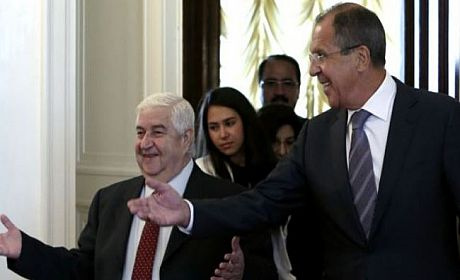Moscow’s Attempt to Escape Diplomatic Failure

If the US attack against Syria does not take place, an important step would have been taken in preventing the spread of crisis in the region. The new conditions that had been created by the serious US threat based on military intervention in Syria have been controlled to a certain extent with Moscow’s diplomatic efforts. Of course it is clear that the acceptance of the Russians’ initiative goes beyond a political maneuver. The existing atmosphere inside the US does not indicate the complete readiness of the responsible institutions for a military confrontation. The reasons are obvious to some extent:
The possibility of the disapproval of the US representatives in Congress, the opposition of the majority of the American people, concerns about the imposed costs and disruption in the economic growth of the country which is a big concern for Barack Obama these days, and finally clear concerns over the unpredictable consequences of the military intervention and the possibility of its spread along with the lack of serious cooperation on the part of the US’ European allies have all led to the delay or cancellation of the US military attack against Syria.
The second point is that Obama believes that the Russian initiative and the plan for international supervision over chemical weapons in Syria and then the acceptance of the ruling regime in Damascus have all been the result of the US’ military threat. If that is the case, and it seems that Obama is correct on this point, then it would mean the continuation of the threat until further notice and that the pressures would also persist. The question that has always been proposed is what are Barack Obama and the White House looking for in Syria? A weaker Bashar Assad, his downfall, superior regional deterrence power to be able to strategically support the Israeli regime, or defining international equations?
Chemical disarmament and the non-possibility of using chemical weapons in critical situations by the Syrians, particularly in its usage in the regional deterrence system, might perhaps be the most important objective of the US. In that case, with the commitment of the Russians and the supervision or control of international institutions, this objective has been reached without war and its heavy consequences. The Russians were also faced with a serious crisis with regard to the US military threat. If this attack occurs and Syria’s capabilities in the balance of deterrence power are weakened, apparently the Russians are not interested in taking retaliatory measures and would have to bear its negative consequences more than any other country in the region; therefore, their measure would be defined in presenting a supervision plan based on their strategic interests.
Meanwhile, it must be noted that the dimensions and the context of their initiative have not yet been explained. International supervision of chemical weapons centers in Syria has no clear definition. Is this supervision only limited to the usage of these weapons inside Syria and aimed at preventing these centers from falling into the hands of the Takfiri and radical groups (which is itself an issue of concern for many regional parties) or will this non-usage be enforced under any circumstances including a foreign military attack or in case of the occupation of the country by Israel? It seems that the ceiling defined by the US is the destruction or complete surrendering of the chemical weapons.
I believe that this step taken by the Russians is considered as an important step in preventing a new crisis in the region (that is why it has been welcomed by the majority of the countries at the international level). But if this matter is considered by the West as the Russians and the Syrians retreating, then there is room for concern that there will be more threats and pressures in different forms and with different excuses.

